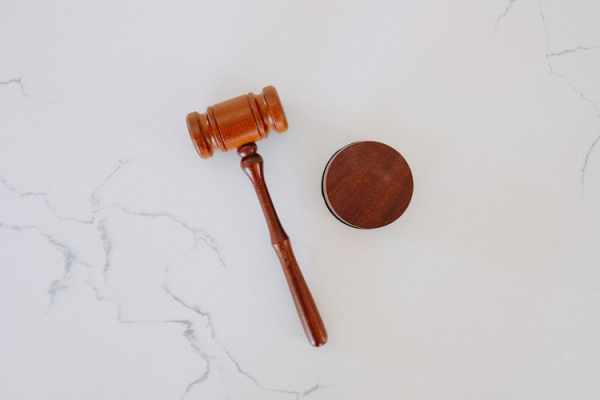If you get injured in an accident caused by another person due to their negligence, you might have the option to pursue monetary compensation as reparations for the injuries that you have incurred.
Suppose that you were injured in a situation where the other person was found to be grossly negligent in contributing to your injuries. In that case, you might be entitled to receive an even greater amount as compensation.
But what exactly is gross negligence? How does gross negligence impact the outcome of your personal injury case in Florida?
This post will shed some light on what gross negligence is in a Florida personal injury case to help you understand its impact on your claim. Knowing what constitutes gross negligence will go a long way in helping you work with Pompano Beach personal injury lawyers when seeking compensation for the injuries that you have incurred.
Table of Contents
What Is Considered Ordinary Negligence?
It is important to understand what counts as ordinary negligence in Florida’s personal injury law to grasp the concept of gross negligence. Common law defines negligence as when the defendant in a case acted unreasonably under the circumstances. Put simply; negligence could be the result of a simple oversight or mistake, such as careless driving in a car accident case.
A person is considered negligent in a personal injury case if they have just made a careless mistake. If found guilty, the defendant will be liable to cover the damages the other party has incurred due to their carelessness. But that is where their liability will end, and they will not need to make more payments in reparations.
It is everyone’s legal duty to take reasonable care and ensure that nobody comes to harm due to their actions or inaction. A person who neglects those duties due to carelessness is considered negligent.
Gross Negligence And Duty Of Care?
Gross negligence is defined as a special kind of negligence that extends beyond standard carelessness that qualifies as ordinary negligence. It is a complete and reckless disregard for other people’s safety and property beyond what you might see in ordinary negligence claims.
Under Florida’s personal injury law, gross negligence is defined as behavior from an individual that was so reckless that it could be equated to an intentional disregard of indifference to the safety, health, rights, or life of a person or persons that were impacted by said behavior. Simply put, gross negligence implies that the person responsible was especially negligent and reckless in their actions.
There is a difference between saying that a person’s actions were unreasonable and that their actions were extremely unreasonable.
The defendant in each negligence case owes someone else the duty of care. Due to the exceptional recklessness of a defendant in a grossly negligent case, the law has a particular focus on the specifics surrounding the defendant’s breach of the duty of care and how their carelessness caused the injuries that you have suffered.
How Does Gross Negligence Impact Your Personal Injury Claim?
Establishing gross negligence in a personal injury case can make a substantial impact on the possible outcome of a claim. A case in which the defendant is found to be grossly negligent could result in the injury victim being rewarded the damages to help them recover from their injuries and any damages they incurred. It means that they can expect to receive the money spent on medical expenses, lost wages, property damage, mental anguish, pain and suffering, and more.
Establishing gross negligence becomes essential when considering the merits of pursuing punitive damages in the case. These are damages that go beyond what is regarded as necessary to adequately compensate the injury victim. Punitive damages are designed to punish the grossly negligent defendant beyond their liabilities to make the parties they injured through their recklessness financially whole again.
Punitive damages send a message to the defendant about the severity of their bad conduct. Juries are likelier to reward punitive damages to victims in cases where gross negligence has been established against the defendant. The worse the breach of the duty of care by the defendant, the greater the punitive damages rewarded by the jury might be.
Establishing Gross Negligence In Personal Injury Cases
Navigating Florida’s complex injury laws to find the right legal strategy for a gross negligence case is challenging. Enlisting the help of experienced Pompano Beach personal injury lawyers can be your best chance to determine whether your situation warrants gross negligence. You should know that the other party’s insurance representative will not push back if your case has reasonable grounds to pursue gross negligence. They are only responsible for paying for the actual damages caused by the defendant in a personal injury case.
Suppose that you were unfortunately involved in a case where the other party’s recklessness was extreme enough to warrant gross negligence. In that case, you may want to reconsider whether you should try to claim compensation for the damages you have incurred from an insurance provider. Provided that your case has merit to pursue gross negligence, it may be better to take your case to the court of law so that the jury punishes the defendant by rewarding you with punitive damages.
It is not easy to determine whether a situation warrants gross negligence. Some of the situations that could qualify for it can include, but are not limited to:
- Driving under the influence.
- Grossly speeding over the limit in a pedestrian traffic-heavy area without attempts to slow down.
- Medical malpractice by doctors who prescribed medicine without accounting for existing medications a patient might be taking, resulting in a severe and adverse reaction.
- A property owner knowingly leaving a dangerous situation unresolved, knowing that people could be seriously injured due to it.
In many gross negligence cases, the assumption is that the defendant did not knowingly want to cause harm, but there is a willful disregard for safety. For instance, a drunk driver injuring you in an accident might not have wanted to cause you harm. In their heads, they might have just been enjoying themselves, things got out of control, and they ended up injuring you. Even if they did not intentionally want to harm you, their reckless decision to drive under the influence caused your injuries.
Have you or someone you know been involved in a case that could warrant pursuing gross negligence against the at-fault party? Consider contacting Frankl Kominsky Injury Lawyers to get in touch with their experienced Pompano Beach personal injury lawyers. The attorneys in the firm can help you determine whether the case can qualify for gross negligence after examining all the facts. You can consider enlisting their help to pursue compensation for the injuries you have suffered and punitive damages for the at-fault party’s gross neg











